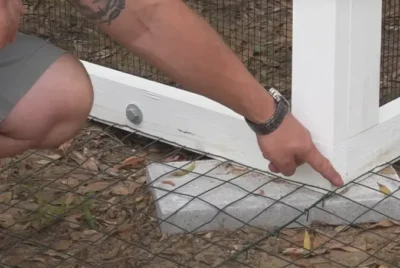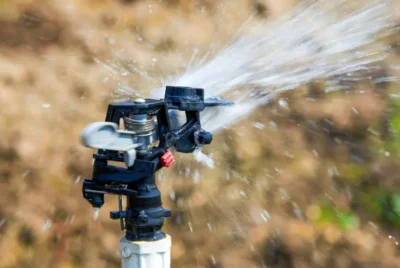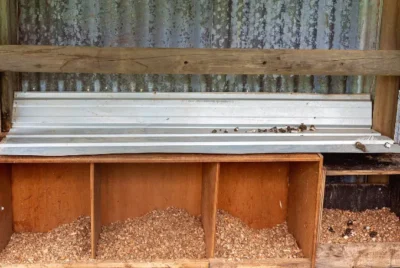Protecting Your Flock: Top Chicken Predators and Prevention Strategies
Along with the rewards of chicken keeping come the ever-present challenges of protecting your flock from a host of cunning and relentless chicken predators. The heart-wrenching sight of lost chickens or the frustration of battling persistent threats can be a painful reality for many chicken enthusiasts.
In this article, we delve into safeguarding your beloved flock from top chicken predators and explore effective prevention strategies to ensure the safety of your feathered friends. Let’s address these concerns head-on and empower you with the knowledge to shield your chickens from harm.
Table of Contents

1. Birds of Prey
Birds of prey, like hawks, falcons, eagles and owls, pose a significant threat to chickens. They can strike from the sky, grabbing chickens and causing harm.
To protect your flock from these predators, it’s crucial to provide them with ample cover. Trees, shrubs, or even structures in their outdoor area can serve as shelters where chickens can hide.
Additionally, encourage your chickens to return to their coop or a secure enclosure before dusk when birds of prey are most active. You can also employ bird deterrents like reflective pinwheels or scare rods to discourage these predators from approaching your chickens.
Read also: Effective Chicken Coop Roofing Strategies to Deter Birds of Prey

2. Coyotes
Coyotes are adaptable predators known for their ability to dig under fences and jump over them to access chicken coops or runs.
To prevent coyote attacks on your flock, focus on building sturdy and secure fencing. Consider using fencing with an apron buried underground to thwart digging attempts. Electric fencing can be an effective deterrent. Installing motion-activated lights or alarms near the coop can startle and discourage coyotes from approaching.
Regular inspections and maintenance of your fences are crucial to ensure there are no weak points that these predators can exploit.
3. Snakes
Certain snake species, such as rat snakes or rattlesnakes, can infiltrate coops and consume eggs, chicks, or even small adult chickens. Preventing snake attacks on your flock requires sealing any gaps or openings in your coop that snakes could use to enter.
Elevate nest boxes to discourage snakes from reaching the eggs. It’s essential to regularly remove eggs from the coop to minimize the attraction for egg-eating snakes. Keeping the coop clean and clutter-free is also important, as it reduces hiding spots for snakes.
4. Minks/Weasels
Minks and weasels are notorious for their relentless and often sadistic attacks on chickens. These small predators can wipe out an entire flock in a single night, and they are known to kill for sport.
To protect your chickens from minks and weasels, use small-mesh wire to reinforce your coop and prevent their entry.
Additionally, consider employing traps specifically designed for these predators. Given their cunning and ability to fit through small spaces, it’s important to be vigilant and proactive in defending your flock against these highly skilled hunters.

6. Fishers and Martens
Fishers and martens are agile predators that can infiltrate chicken coops and pose a serious threat to your flock. They often kill chickens by biting the head or neck, causing severe injury or decapitation.
To protect your chickens, reinforce your coop with small-mesh wire to prevent these predators from gaining entry. Regularly inspect the coop for any gaps or openings that fishers and martens could exploit.
If they become a persistent threat, consider using live traps designed specifically for these predators.
7. Rats
Rats, while typically considered scavengers, can become opportunistic predators, especially when they have access to a chicken coop. They tend to attack chickens at night, going after eggs, chicks, or even pecking at adult chickens while they sleep.
To prevent rat attacks, maintain a clean coop environment, and ensure that there are no food scraps left around, reducing the attraction for rats.
Seal any openings or gaps in the coop to prevent their entry. Elevate nest boxes to deter them from reaching the eggs. You can also use rat traps or poison baits strategically placed in areas frequented by rats.
Read also: How To Effectively Rodent-Resistant Your Chicken Feeder

8. Raccoons
Raccoons are notorious for their cunning and ability to open latches and doors, making them a significant threat to chickens. They often kill and eat birds right in the coop or run. Signs of raccoon attacks include puncture marks near the head and partially consumed birds. To safeguard your chickens from raccoons, use locks and secure your coop with sturdy hardware cloth. Regularly inspect the coop for any potential points of entry and reinforce them as needed.
9. Bears
While less common, bears can pose a significant danger to your flock. They are strong and determined predators and may attack chickens if they are desperate or smell food in the coop.
To prevent bear attacks, do not store chicken feed or kitchen scraps inside the coop. Keep the coop area clean and odor-free to minimize the attraction for bears. If you live in a bear country, consider additional security measures, such as electric fencing or bear-proof containers for feed storage.
10. Stray Dogs
Stray dogs, as well as neighborhood dogs, can be a formidable threat to chickens, particularly when the flock is free-ranging. A single dog can cause significant harm in a short time.
The best defense against dogs is to install a tall and high-quality fence around your property, preventing them from getting over or under it.
If a neighborhood dog has attacked your chickens, it’s essential to address the issue with the dog’s owner and discuss their responsibility for any damage caused to your flock.
11. Cougars, Bobcats, and Mountain Lions
Cougars, bobcats, and mountain lions are large predatory cats that can occasionally pose a threat to chickens, especially in areas where these predators are prevalent. These big cats typically target smaller livestock and may attack chickens. Signs of their presence include scratch marks around the area where they killed a bird.
To protect your chickens, especially in regions with significant big cat populations, it’s essential to use secure fencing, including electric fencing if necessary. Be vigilant and keep an eye out for any signs of these predators in your area.
12. Possums
Possums are scavengers and proficient climbers. While they primarily go for eggs, they can occasionally attack young birds. Signs of possum attacks include finding eggshells and parts around the coop.
To protect your chickens from possums, ensure your coop is well-secured with strong doors and windows that are closed at night. Also, elevate your nest boxes to prevent possums from accessing the eggs. Possums are usually beneficial for pest control, so it’s a good idea to coexist with them as long as they are not causing problems in the coop.

13. Skunks
Skunks rarely attack adult chickens, but they may target eggs and baby chicks in the coop. When they do attack, they typically go for the throat of the bird. To safeguard your chickens from skunks, especially chicks, consider keeping the young ones inside your home until they’ve grown and can better protect themselves.
Prevent skunks from making your coop their home by reinforcing the coop’s bottom and using hardware cloth to prevent them from burrowing underneath. Keeping the coop clean and odor-free is essential to discourage skunks from being attracted to it.
Conclusion
Protecting your flock from chicken predators is an essential aspect of backyard chickenkeeping. By understanding the top chicken predators and implementing effective prevention strategies, you can create a safe environment for your chickens to thrive.
Remember to regularly inspect and maintain your coop, provide adequate shelter and security, and stay vigilant to ensure the well-being of your chickens. With the right precautions, you can enjoy the benefits of raising chickens while keeping them safe from harm.
For a more in-depth guide on advancing your chicken coop security strategies, we invite you to explore “A Complete Guide to Advance Chicken Coop Security Strategies” to further fortify your flock’s safety.





